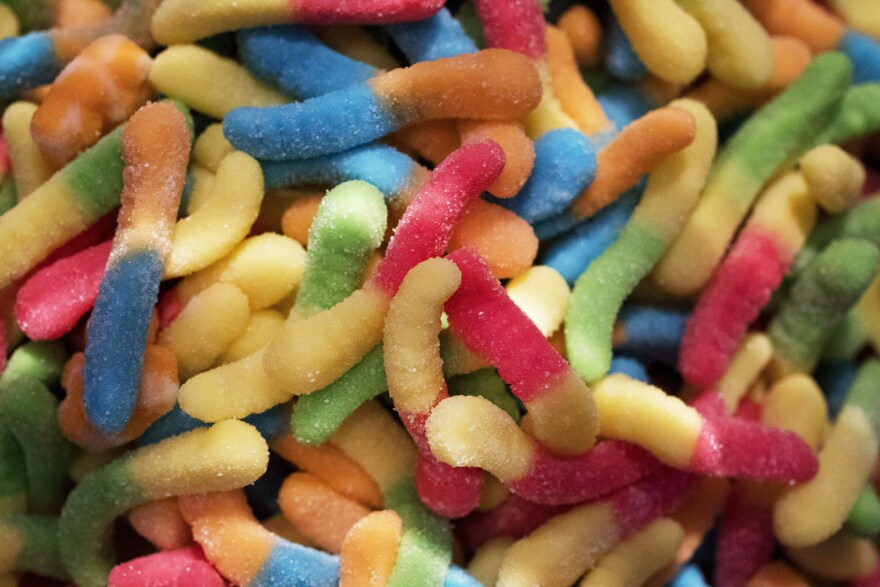Physicians are increasingly concerned as cases of accidental marijuana ingestion among children 3 and younger spike at Cook Children’s emergency department in Fort Worth.
In 2023, Cook Children’s Medical Center provided medical care to 50 children under the age of 3 whose urine tested positive for tetrahydrocannabinol, also known as THC, the main psychoactive ingredient in the cannabis plant. This is a 51% increase from the 33 marijuana-related emergency visits the Fort Worth hospital saw in 2022.
THC-positive urine screenings in patients (ages 0-3) at Cook Children’s in recent years:
- 2019: 8
- 2020: 13
- 2021: 29
- 2022: 33
- 2023: 50
(Source: Cook Children’s Medical Center)
In recent years, the vast majority of Cook Children’s marijuana-related visits have been linked to teenagers, but it’s important to know the drug’s big impact on babies and toddlers’ small bodies, said Dr. Anelle Menendez, clinical educator for the North Texas Poison Center.
“Cannabis has the potential to cause significant harm to children in this age range over any other age range. These are the kids who are going to have the most serious side effects,” Menendez said in a statement. “It has the potential to cause very significant toxicity in children.”
Calls to the North Texas Poison Center regarding children exposed to cannabis rose over 1,000% from 2019 to 2023, according to Menendez.
Here’s what parents, guardians or families can do if their child accidentally consumes marijuana:
Marijuana at home
Parents, guardians or family members should take precautions with any marijuana or at home, including gummies, edibles and vaping cartridges. No amount of marijuana is safe for children, according to Cook Children’s.
Children are curious and may confuse marijuana-infused candy, colorful packaging or cookies for a regular treat. The best practice is to keep marijuana out of the home, but if it is present, people should keep it locked up, out of reach and out of sight, said Klaressa Broughton, coordinator for the poison prevention program at Cook Children’s Center for Community Health.
“I tell parents to be aware of who’s in their household,” she said in a statement. “Do you have toddlers? Do you have teenagers? Keep in mind who’s in your home, and then create a plan to have safe storage instead of leaving those gummies out on the counter.”
Menendez also recommends not vaping, smoking or consuming edibles in front of children.
What to do if your child ingests marijuana
If a parent or guardian suspects their child has swallowed a marijuana item, they should immediately seek medical help at 911 or call the Texas Poison Center at 1-800-222-1222.
A child who swallows an item containing THC can become extremely sleepy or unresponsive. Their heartbeat could soar and they might struggle breathing or have trouble crawling or walking. If you call the hotline, experts will ask how the child is acting and how much time has passed.
If your child is transported to an emergency care department, medical personnel will do a urine screening for the diagnosis. From there, medical personnel will monitor vital signs and fluids, protect the airway and watch for worsening symptoms. High concentrations of THC tend to cause more severe cases, which may require additional monitoring at a hospital.
“A single gummy in the carpet or in the crevice of a couch can be found by a child and be toxic,” Dr. Jamye Coffman, medical director of Cook Children’s CARE team, said in a statement.
Any effects on your child will usually wear off within 12 hours. Children treated for marijuana ingestion can typically be discharged after they become alert, playful and resume eating and drinking.
“It’s going to have a very negative effect on your baby, and it will be one of the scariest moments you ever go through in your life,” Menendez said in a statement. “There’s no judgment here. We’re here to help you the best we can.”
David Moreno is the health reporter for the Fort Worth Report. His position is supported by a grant from Texas Health Resources. Contact him at david.moreno@fortworthreport.org or @davidmreports on X.
At the Fort Worth Report, news decisions are made independently of our board members and financial supporters. Read more about our editorial independence policy here.
This article first appeared on Fort Worth Report and is republished here under a Creative Commons license.

